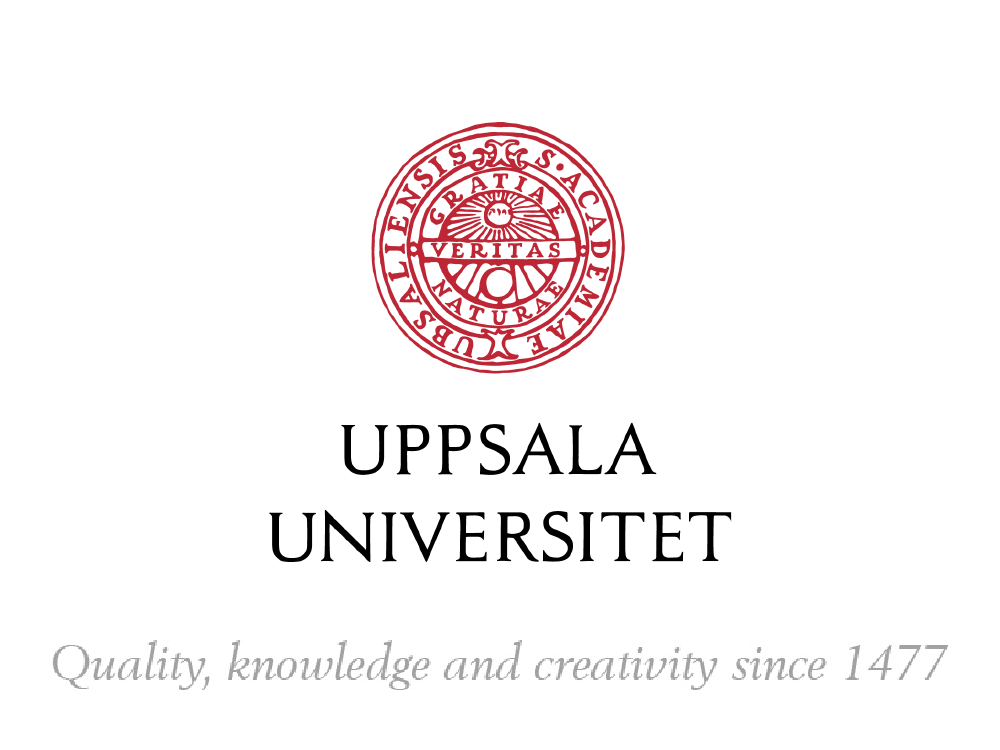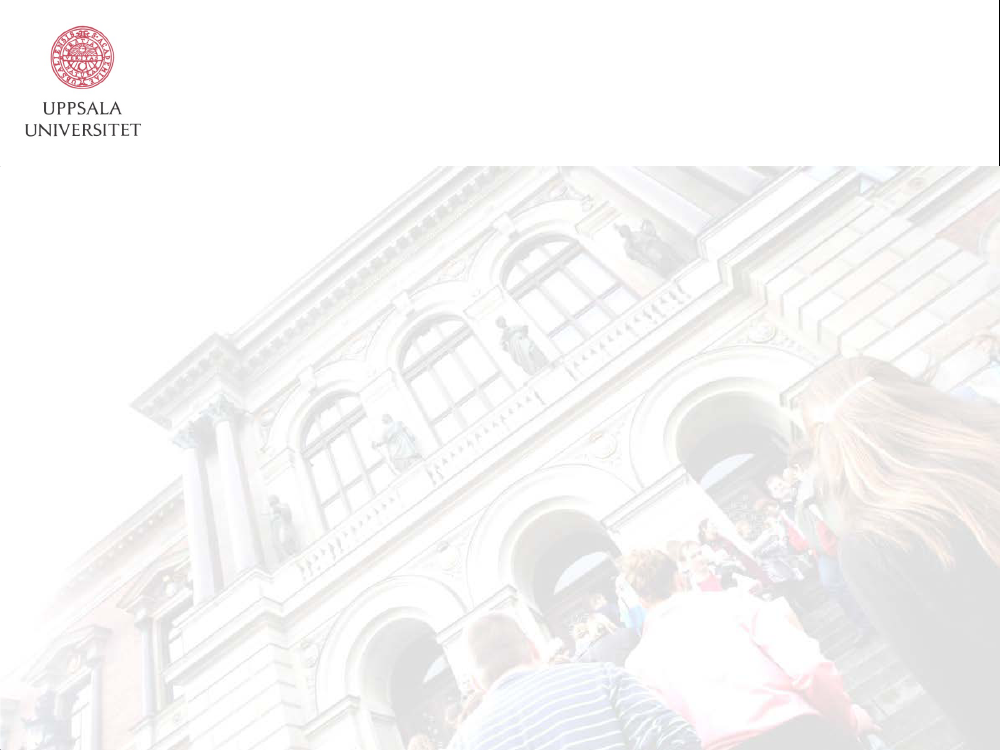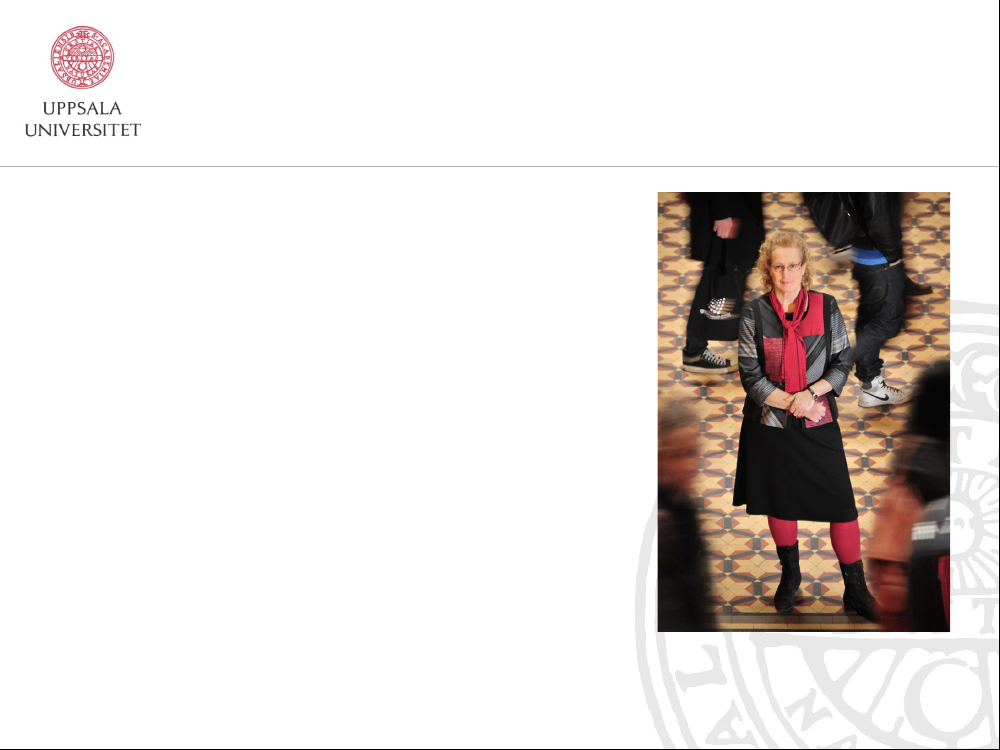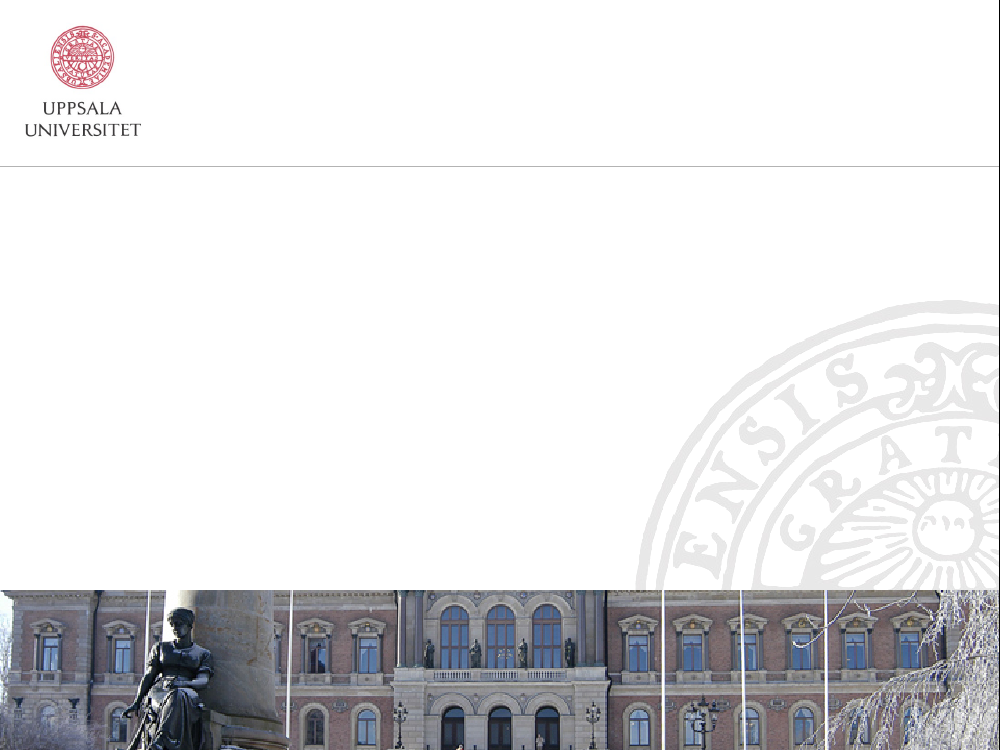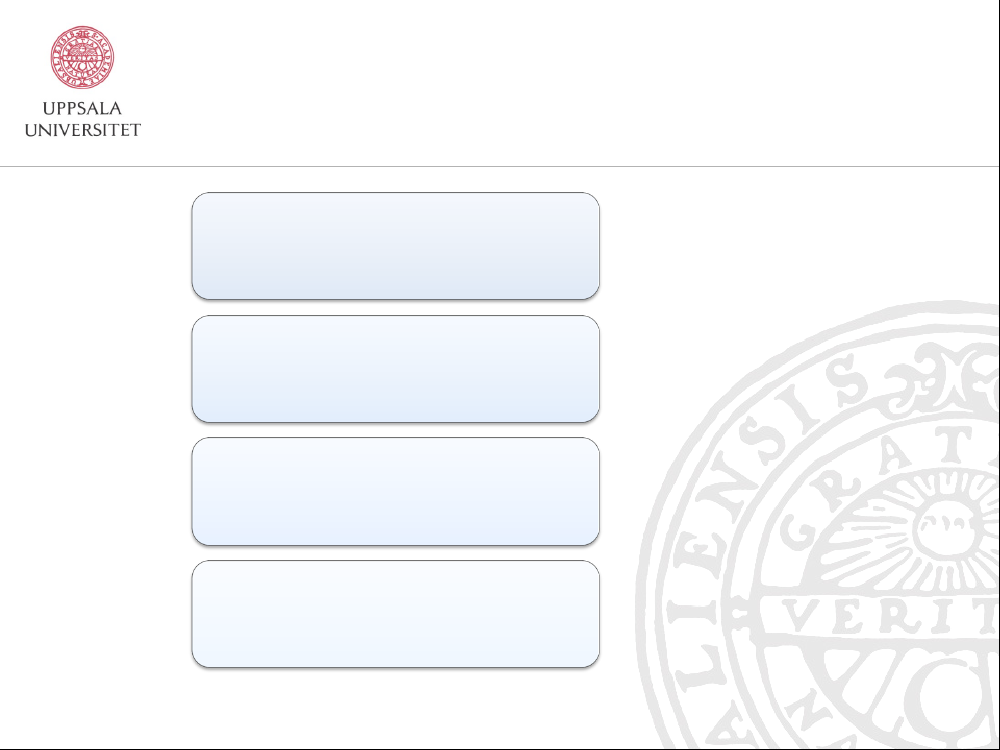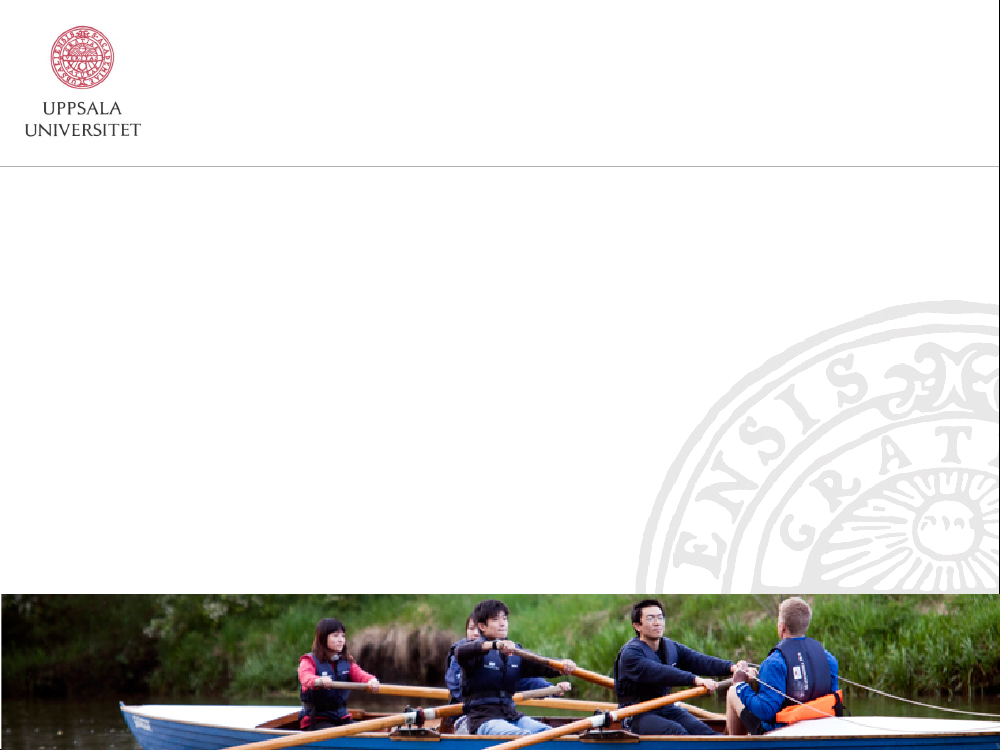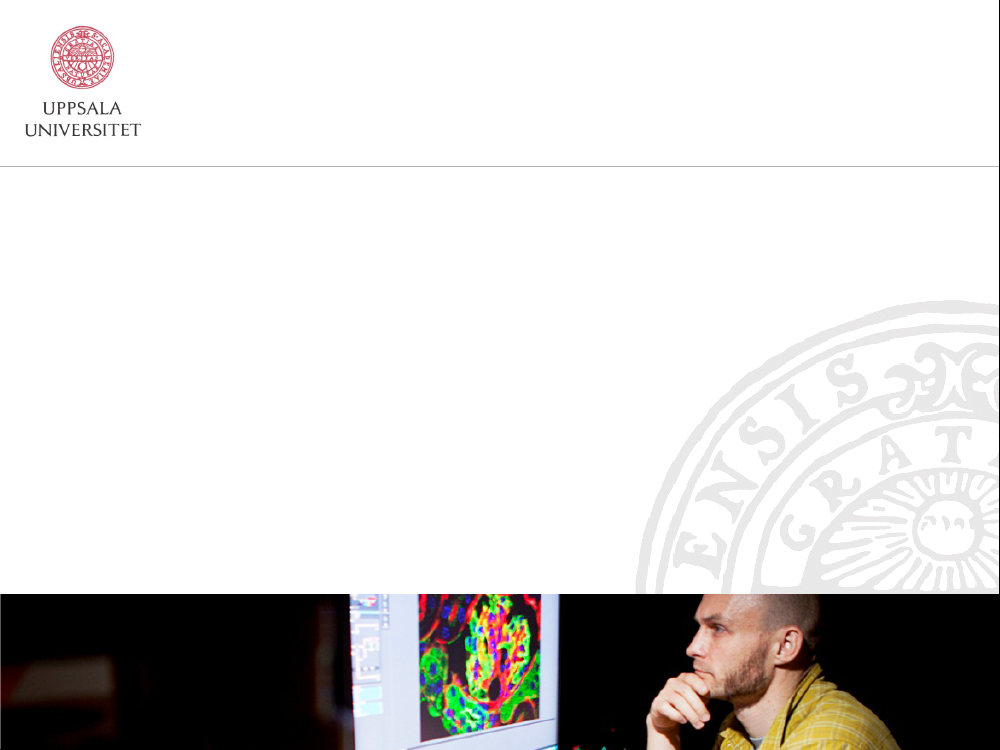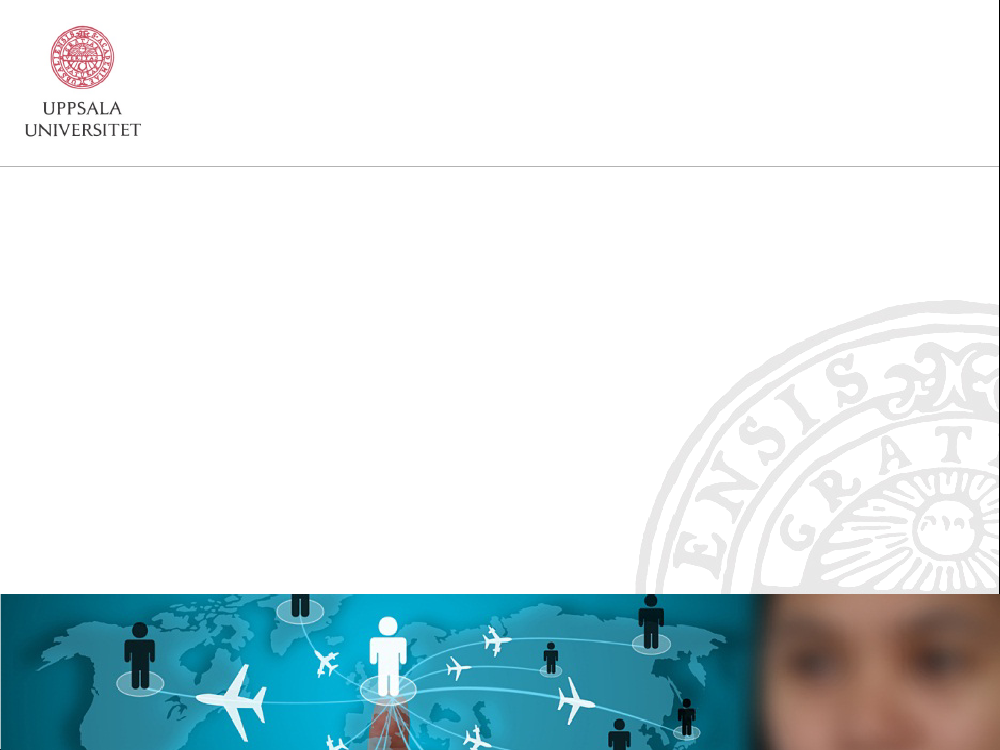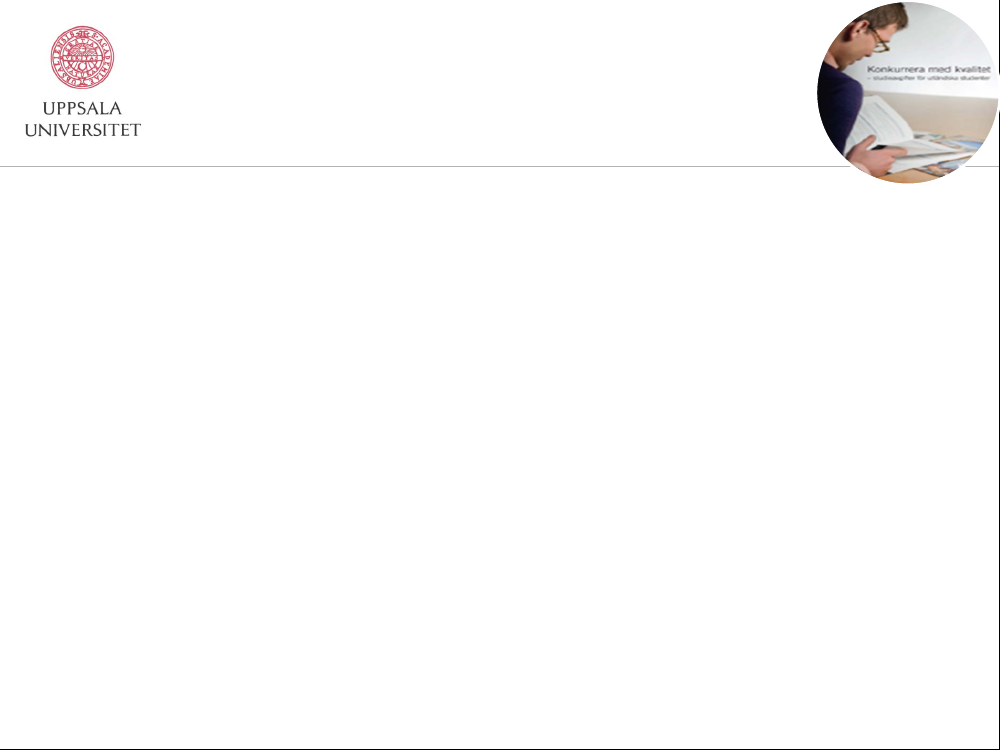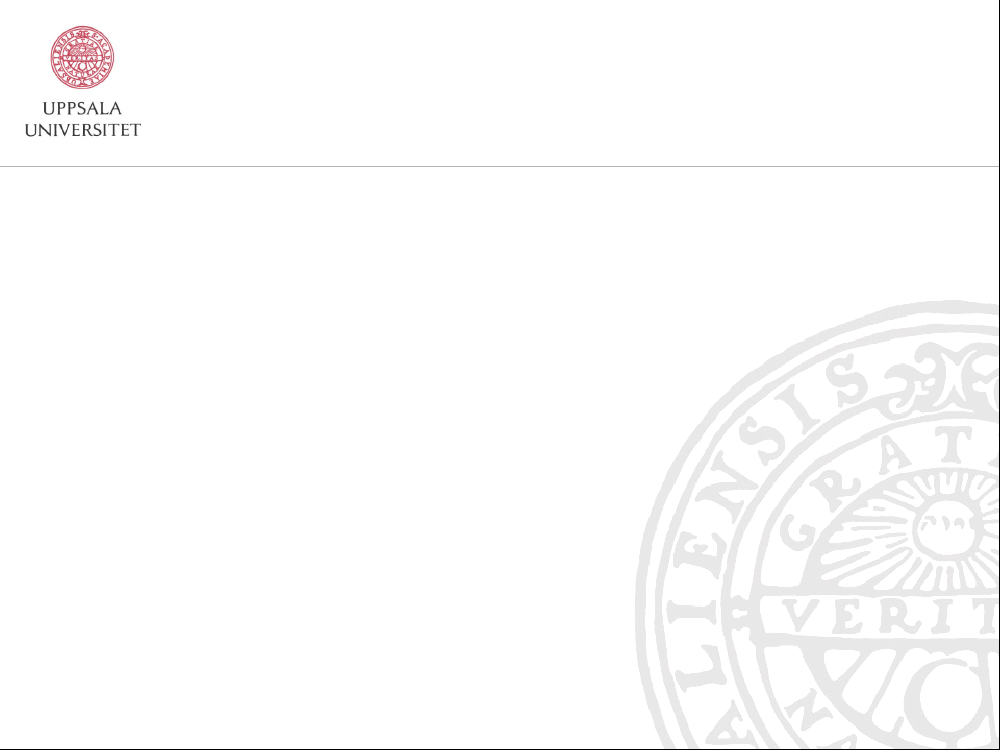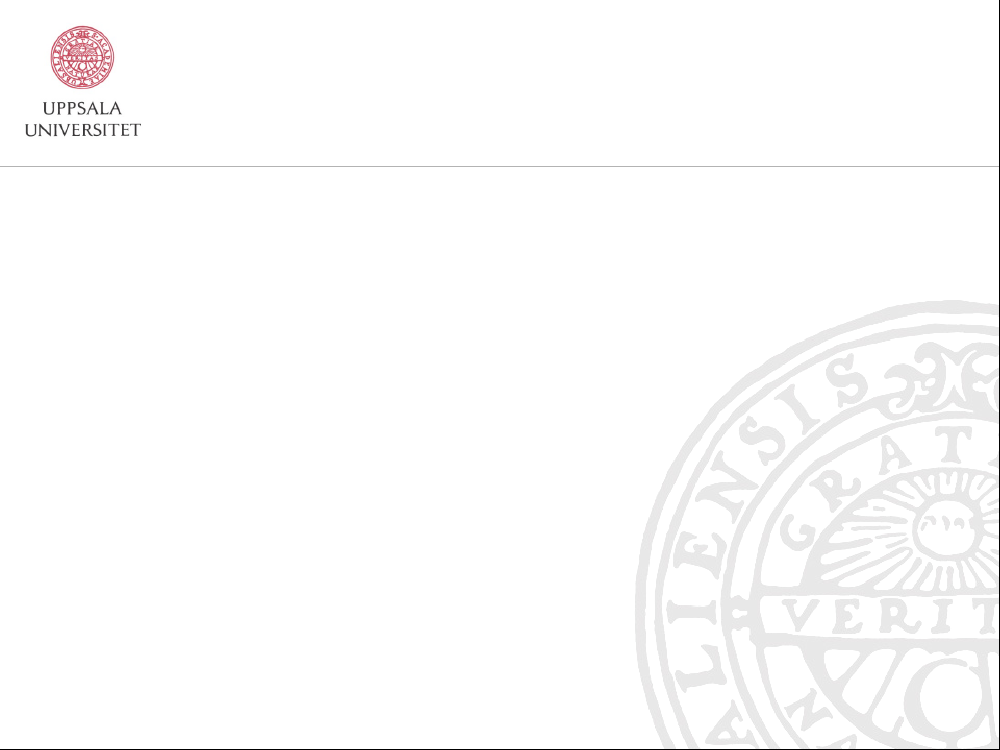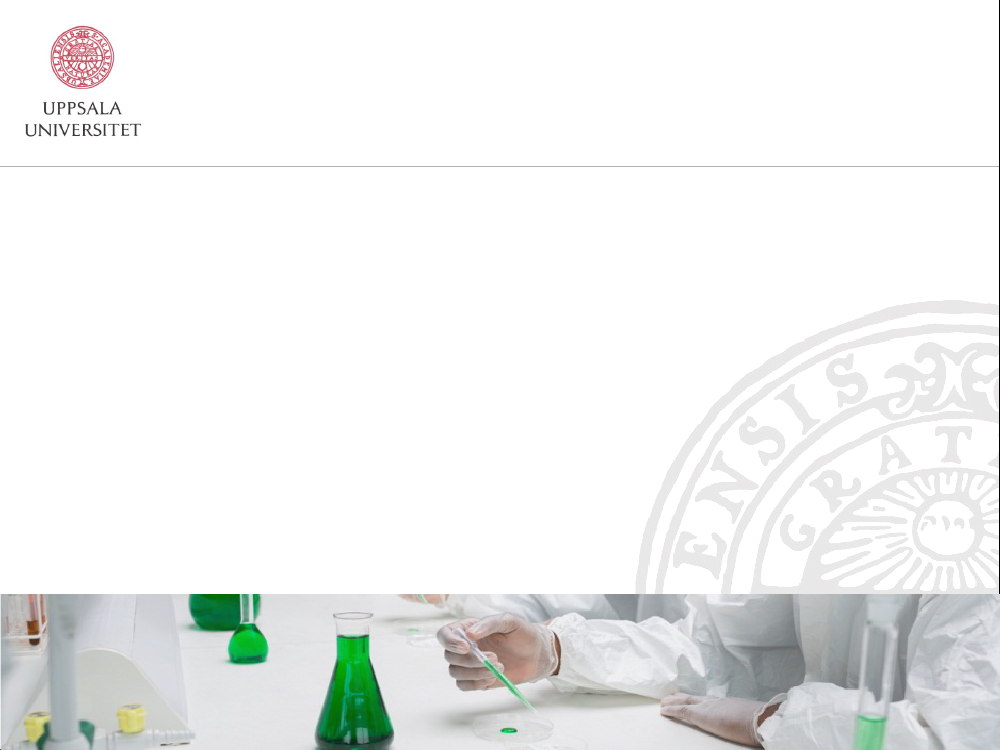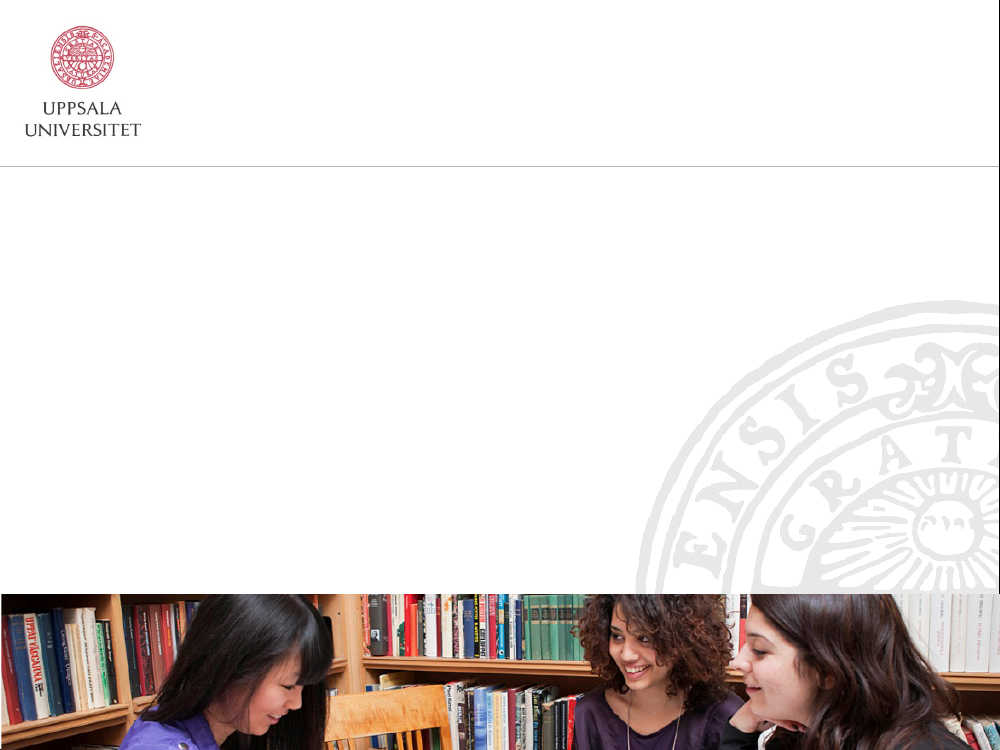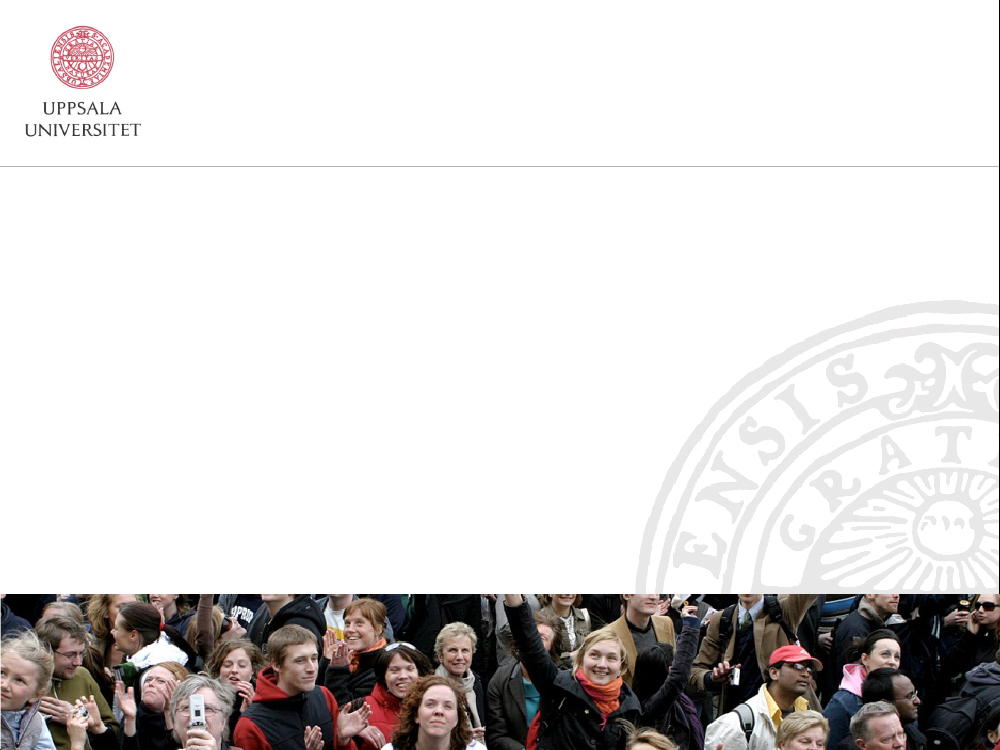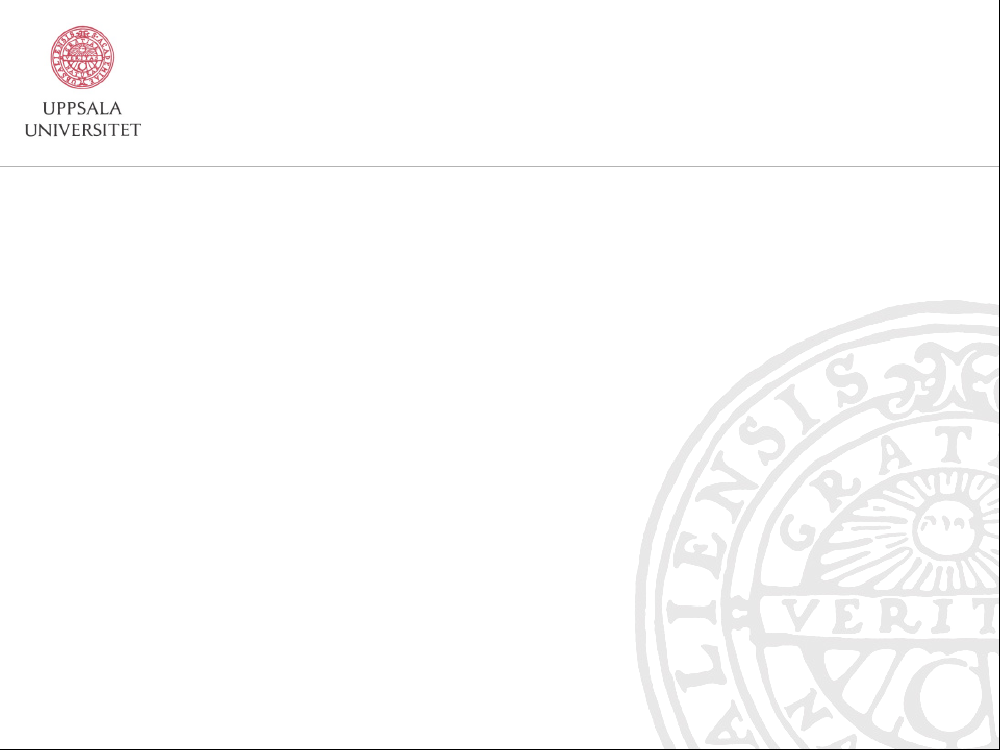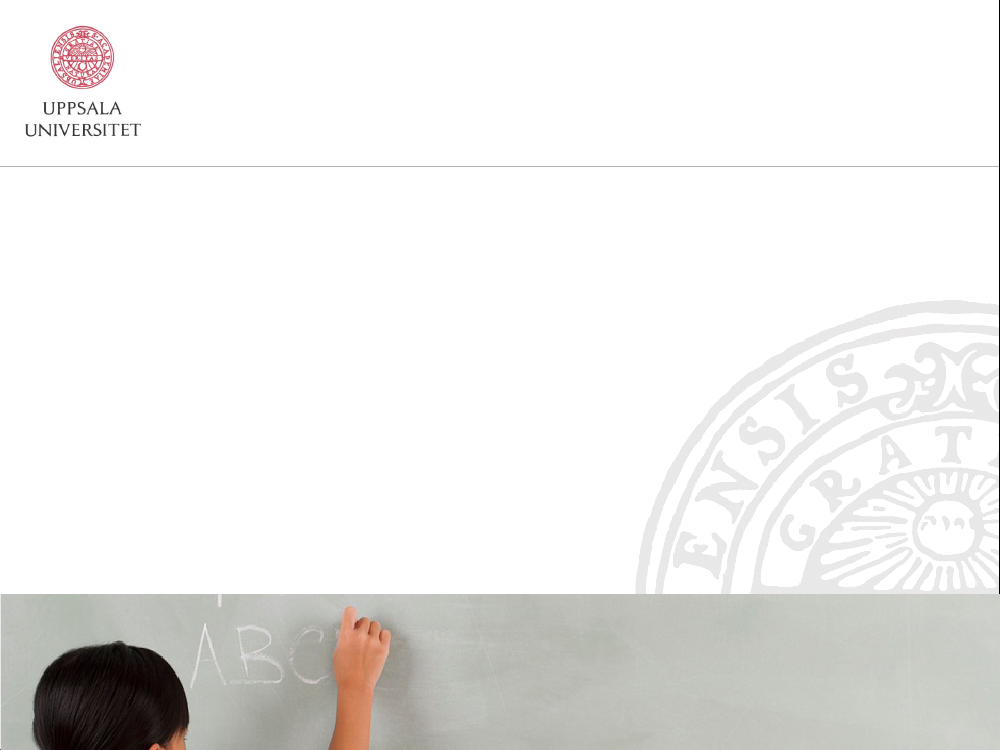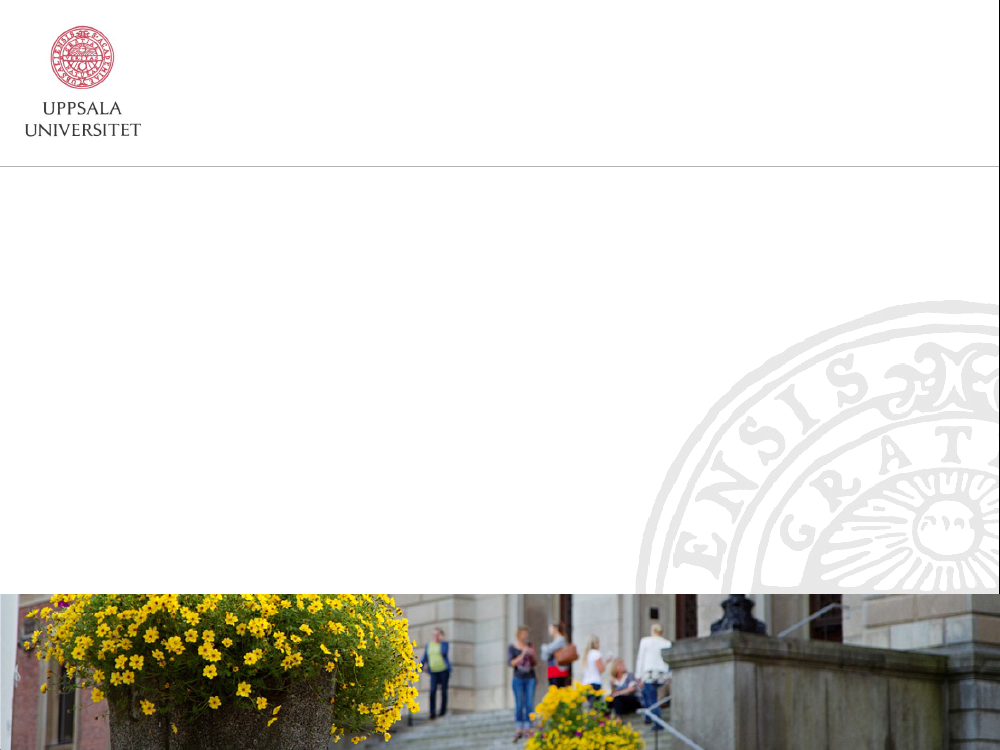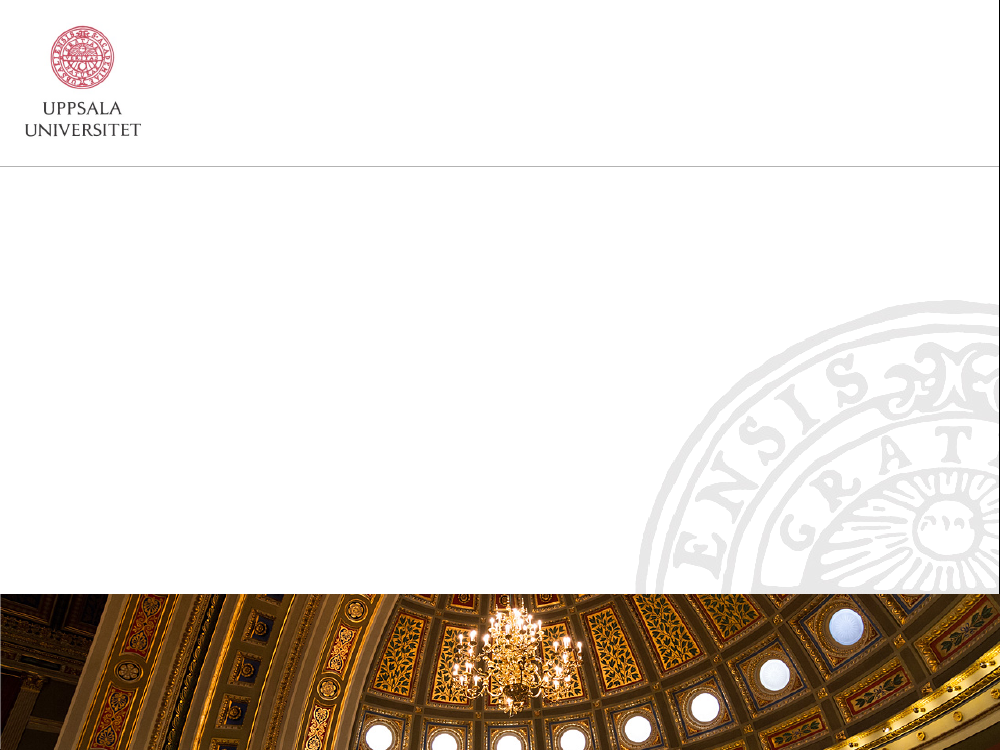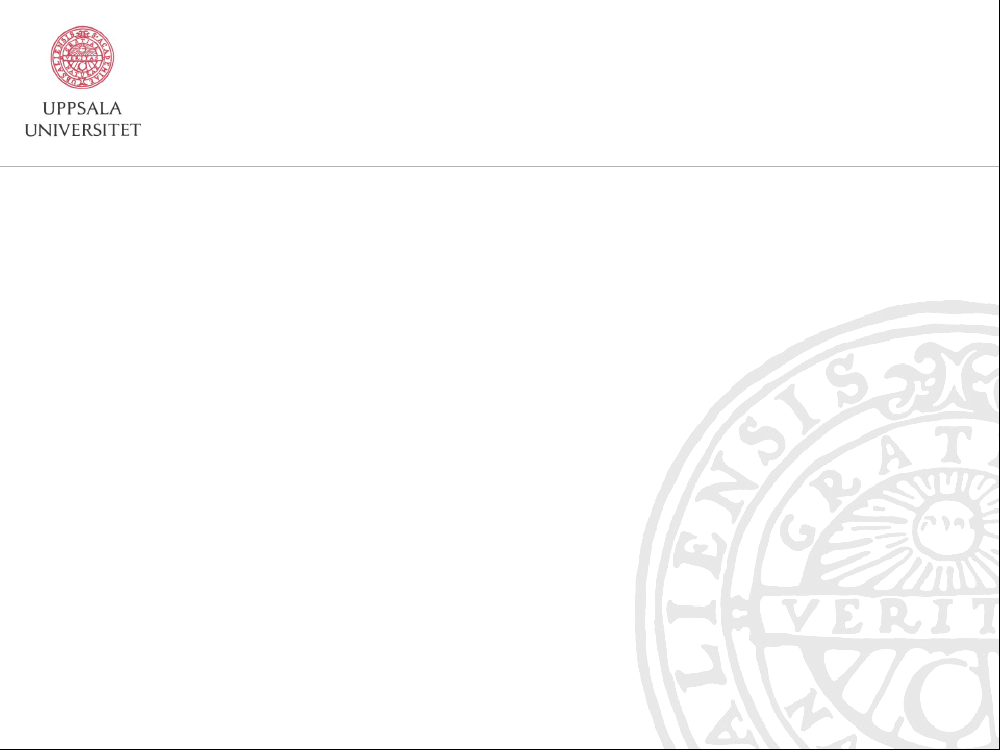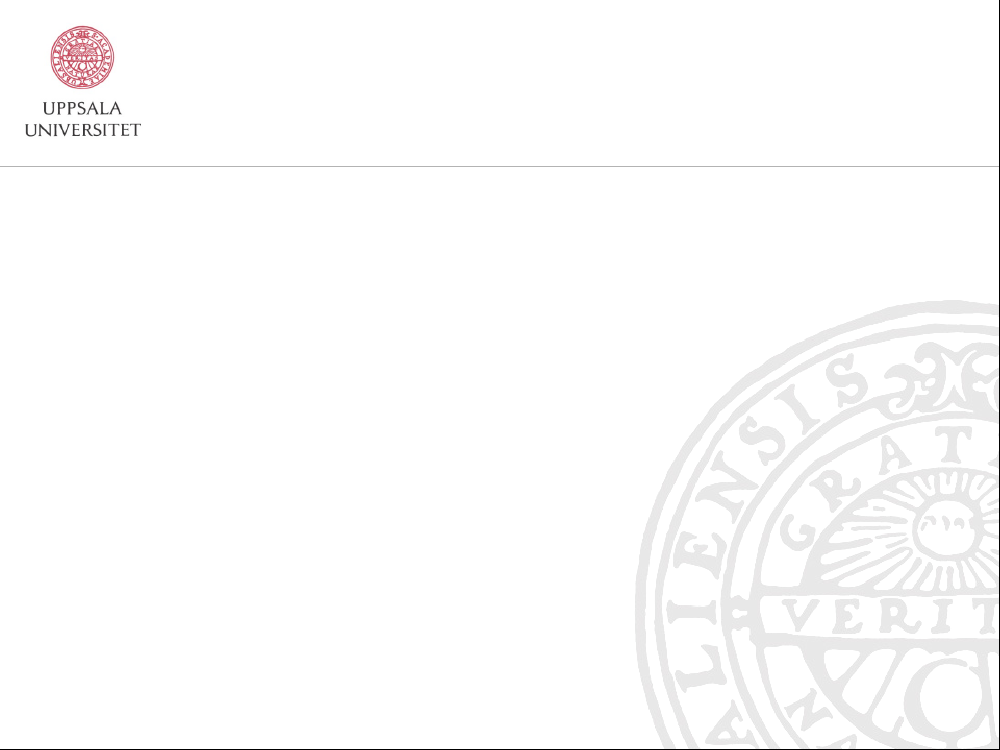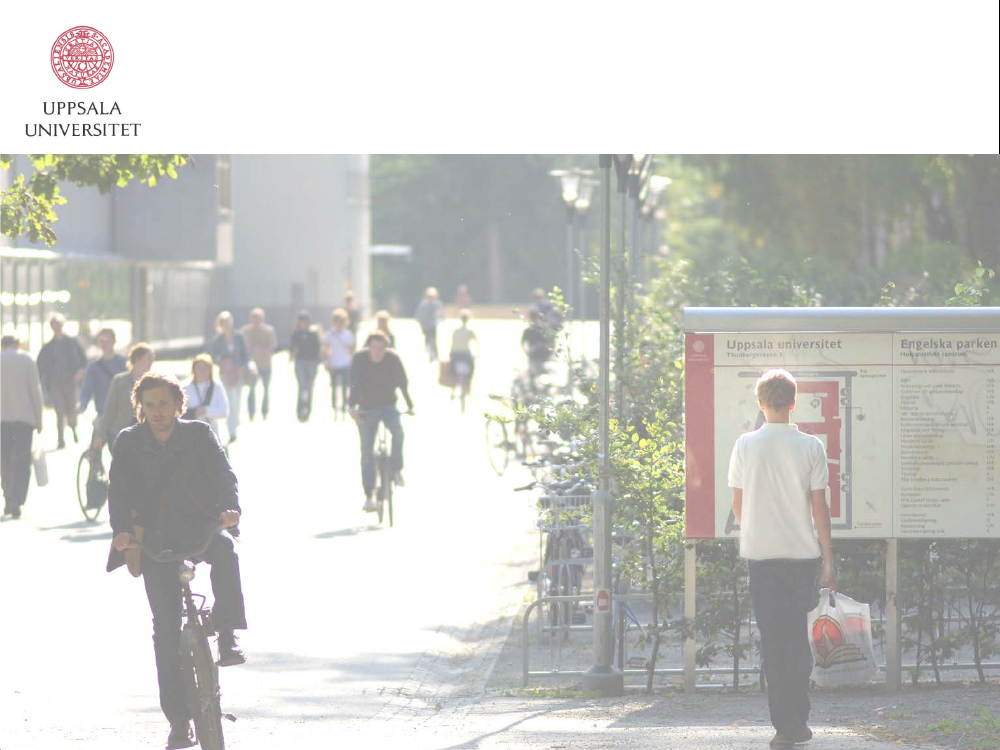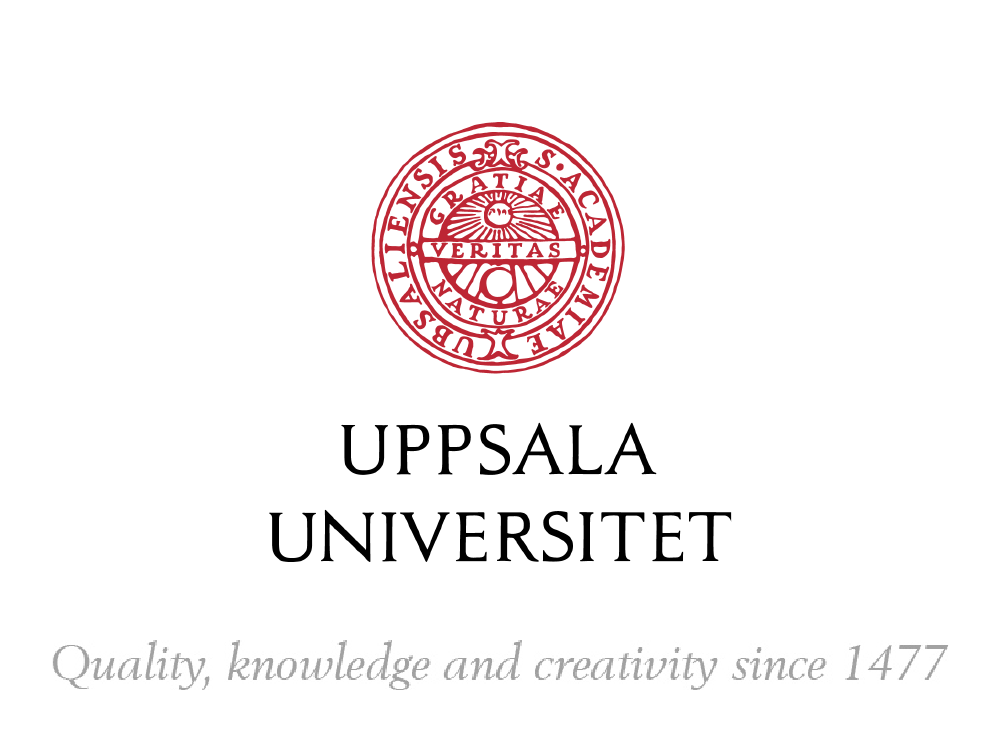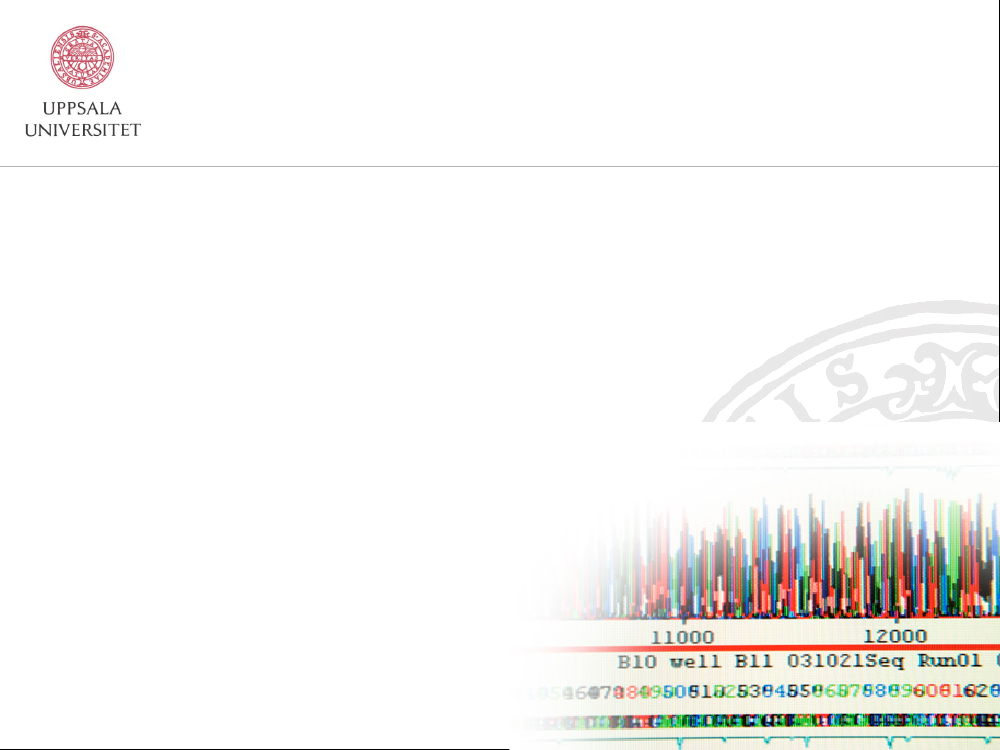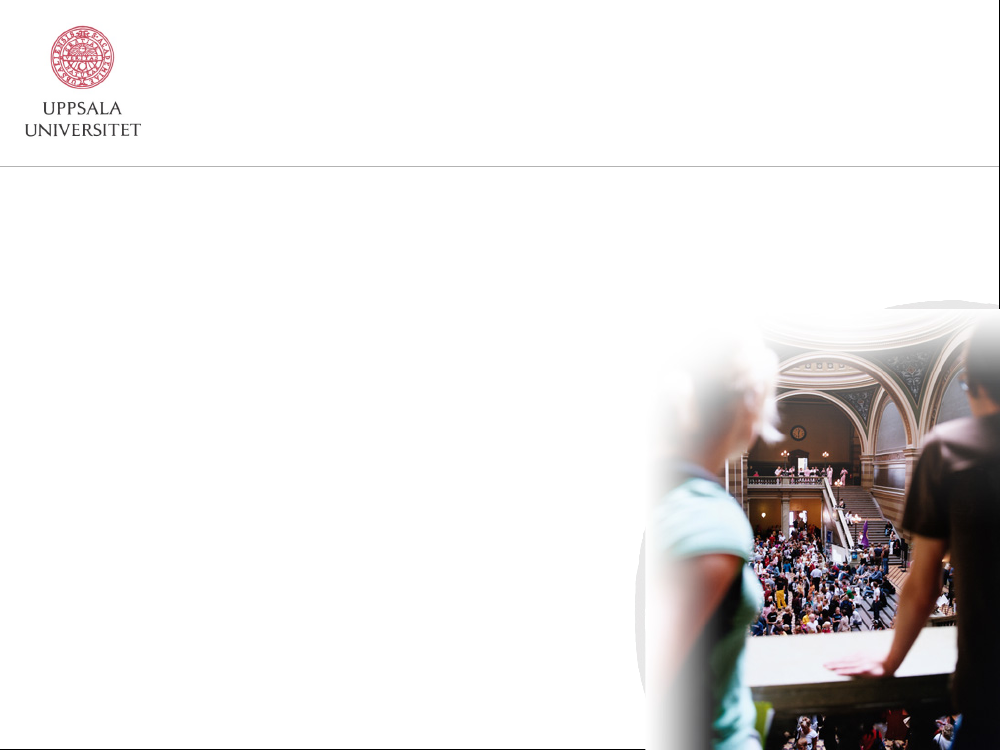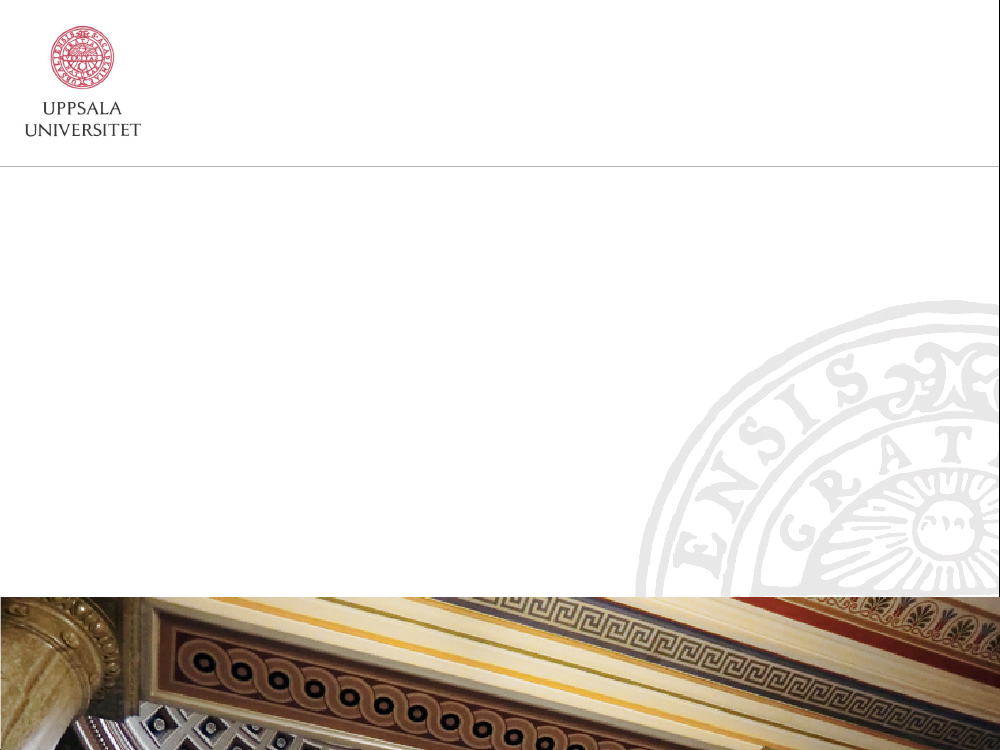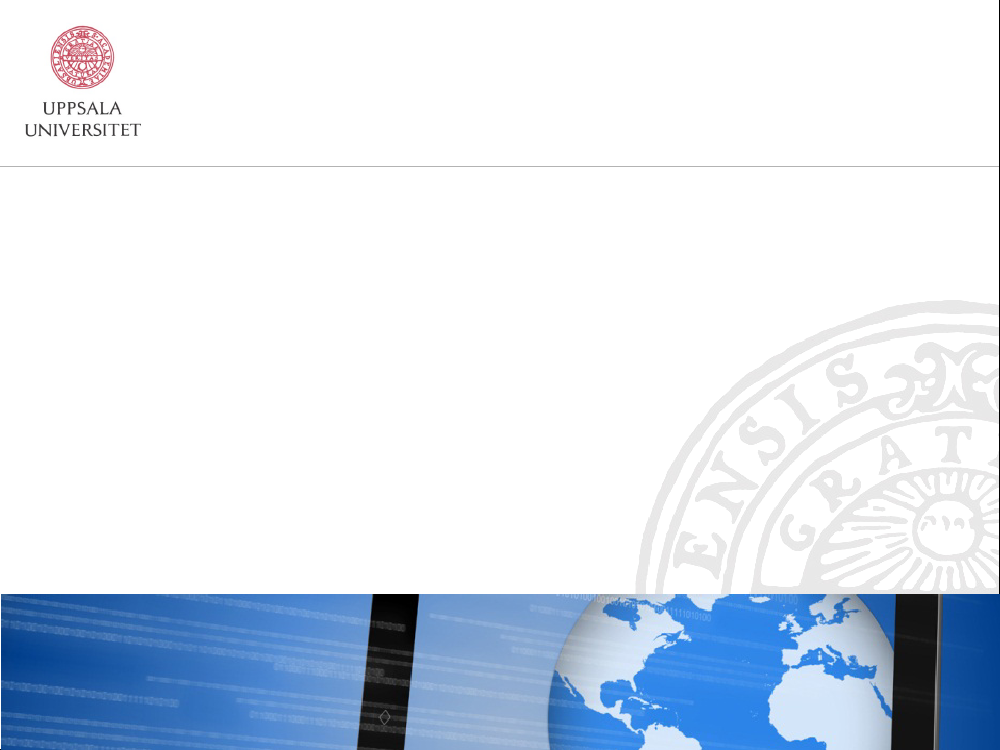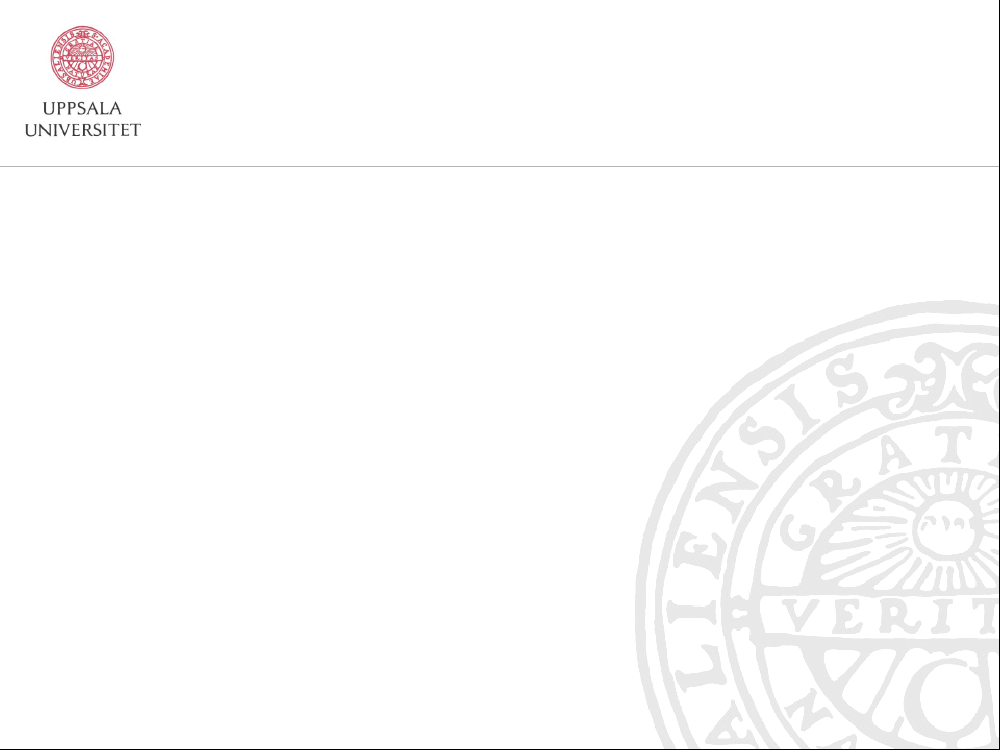Udvalget for Forskning, Innovation og Videregående Uddannelser 2012-13
FIV Alm.del Bilag 102
Offentligt
Uddannelser i etinterkulturelt perspektivEva ÅkessonVice-Chancellor,Uppsala University
Copenhagen2013-01-29
Eva Åkesson – background• PhD Umeå University,• Post doc University of Minnesota, USA• Professor of chemical physics–femtochemistry, dissociation reactions, energy andelectron transfer, solvation
• Vice-rector Lund University 2003–2008• Pro vice-chancellor LU 2009–2011– Internationalisation, quality issues, strategiceducation planning, Bologna process
• Vice-chancellor Uppsala University
Goals and strategiesUppsala University shall:• Pursue research and education of the highestquality• Play an active role in global society,promoting development and innovation• Be far-sighted and open to change in allfacets of its work• Contribute to making our world a better place
Strategic priorities for UUQualityInternationalisationInfrastructureHuman resources
Internationalisationat Uppsala University• 40 international Master programmes andnearly 300 free-standing courses in English• 118 paying (non-EU) students autumn 2012• International student exchange: agreementswith nearly 500 universities in 50 countries• 1,700 incoming, 800 outgoing students/yr• Participants in several international networks,such as Coimbra, U4, Matariki & Sanord
Excellent research isalways international• 4,400 peer-reviewed articles• With 10 300 foreign authors• Approx. 1,000 research collaborations withforeign universities
Excellent education isalways international• Most Master programmes in English• Internationally compatible degrees• Bachelor programmes with manyexchange students• Teaching and examinationinternationalised• The global seminar
Tuition fees - Reform 2011“Compete with quality”• No governmental funding for Non-EES students– Decrease funding approx 500 million SEK 2013
• Each university decides the price– full cost covering but profit not allowed– result EUR 7500– 36 000 / academic year
• All studies at BA and MA requires fees,– PhD education still without fees
• For the first time stated in law that Higher Education forEuropean Students shall be tuition free• … and introduction of Application Fee SEK 900
Tuition feesSwedish background & experience• Denmark & Sweden first out• A challenge for Nordic universities• Sharp decline of international students• Dialogue between government anduniversities needed– Issues to sort out
• Adapted labour market & politics necessary• A concern for everybody• The Ministry of Enterprise and Ministry ofForeign Affairs as much as for the Ministry ofEducation and Research
Conflicts between systems– political support needed• “Compete through quality” requires activepolitics in support of universities• Visas, tuition fee rules, admission systemsthat support international recruitment,marketing• Mundus, Knowledge InnovationCommunities, Science Without Bordersdemand quick adaptations of nationalsystems
Sweden:Small and dependent on exports• Highly multinational trade & industry• Generations of successful Swedishentrepreneurs• New generations are shaped at theuniversities• Students must get a education that preparesthem for a global labour market.
Make the most ofinternational students• Internships at Swedish companies• Make it easier to stay after education• Keep ties to Sweden after returning home• Example: Our alumni in China who want towork/do business with Sweden.• Sweden’s best ambassadors
Make the most ofSwedish students• A global classroom/seminar• Coordinate teaching with foreign universities• International work experience• Increase outgoing students,don’t decrease incoming students• Global citizens• Awareness of the competitive landscape forSweden as a small country
Handshakes with the industry• Working together to attract internationalstudents for work and research inSweden/with Swedish industry• Scholarships, internships,trainee positions, jobs• Intl. students must be welcomed by Swedishindustry, not sent home after their education• Swedish students welcomed by Swedishcompanies abroad
Look beyond India & China• Talent available in many places• Africa – Pan African University• Latin America - Erasmus Mundus, ScienceWithout Borders• Middle East – Erasmus Mundus, nationalscholarship programmes
Investments in higher educaiton• Financial capital and research results havehigh mobility across country borders• Educated work-force much more bound tothe country that paid for its education• Conclusion: Benefits of subsidies for highereducation remain in the country(Tillväxtanalys Working paper 2012:23 p. 42)
InternationalisationA long-term missionQuality takes time…Long-term investments…Patience in cooperation with other regions…Reach agreement on the value for Sweden
In the global perspective…Sweden is small…all Nordic countries are smallWe must cooperate to remain relevantin both education and research:• common marketing• more Nordic Master programmes• more common infrastructure• obstacles to mobility must be removed(Danish tuition fees)
Challenges• Universities originally intended to strengthenthe local society and incorporate new areas:– Lund and Dorpat with Sweden
• Now institutions used by nations as means ofcompeting globally for talent, resources andresearch results• Requires awareness and active support frompolitical level and new forms of collaboration• Enhance mobility among staff• International rectruitment
Thanks for your attention!
Facts• Oldest Nordic university – founded 1477• Three disciplinary domains:– humanities and social sciences– medicine and pharmacy– science and technology
• Nine faculties – over 50 departments• Turnover: 5,600 MSEK– Research : 70% of spending– 50% of research by external funding
• Number of employees: approx. 6,000• 3,400 teachers & researchers, 40% women• 600 professors, 24% women
Facts – education• 40,000 students (23,500 full-time equivalents)• 60 programmes for beginners• 50 programmes at Master’s level• 2,000 free-standing courses• 4,500 students get their degrees• 2,300 doctoral students (1,500 full-time), 50% women• 300 PhDs and 80 licentiate degrees per year• 60% within humanities and social sciences• Most popular programmes: medicine, law,psychology, dietetics, human resource management
Industry & universityInnovation: Swe. best in the EU, no 4 in OECDUppsala in 2011:• Three major company sales• Five new companies• 10% increase in patent advice• Successful new meeting concept: AIMday�• 144 new student companies in 2011
Challenges• Teacher education a part of the universitysince 40 years – still strong nationalemphasis• We need a more ingrainedinternational perspective• We need to view our societies from a globalperspective already in elementary school
Summary• Quality• Long-term commitment• Cooperation
• …and remove tuition fees for Swedishstudents in Denmark
